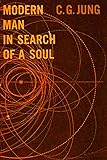Sublime
An inspiration engine for ideas
The Interpretation of Dreams was, in many respects, the original surrealist manifesto, pre-dating André Breton's by over twenty years.
Frank Tallis • Mortal Secrets
Jungian Film Studies: The essential guide (Jung: The Essential Guides)
amazon.com
if a prereflective axiological self-understanding exists, we may assume that it is ultimately anchored in our biological heritage.
Viktor E Frankl • Man's Search For Meaning: The classic tribute to hope from the Holocaust
psychology
dana • 5 cards

commanded by associations from all my subjective impressions.
Madame de Salzmann • The Reality of Being
“I am not fully known to myself because part of what I am is the enigmatic traces of others.”
Ken Robinson • Finding Your Element: How to Discover Your Talents and Passions and Transform Your Life
Insights from both individual therapy and couples therapy can help
Dr Julie Smith • Why Has Nobody Told Me This Before?: The Sunday Times bestseller, with over 1 million copies sold
